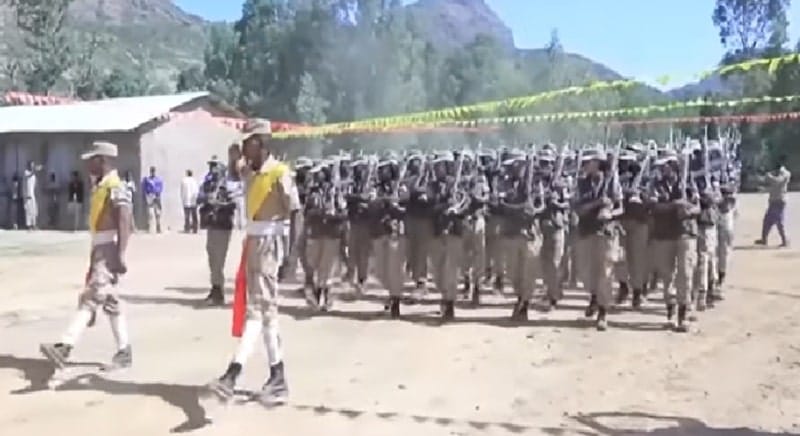
General Tadesse Werede has made a thoughtful stand amidst rising tensions in the Afar region, expressing his dedication to resolving conflicts through peaceful means. He recently addressed concerns over harassment from militants of the former Tigray forces, emphasizing that any aggression from their side is viewed as the responsibility of the Ethiopian federal government. Tadesse highlighted efforts to prevent further conflict, stressing that any issues arising with these militants must be settled peacefully or else be deemed a federal concern. Meanwhile, the Tigray People’s Liberation Front (TPLF) has accused the federal government of supporting these militants, adding layers of complexity to the situation. This evolving dynamic paints a challenging picture of Tigray’s current political landscape and calls for vigilant negotiations.
Efforts for Peaceful Resolution with Militants
General Tadesse Werede’s Approach
General Tadesse Werede has emphasized a peaceful approach in resolving tensions with the militants of the former Tigray forces in Afar. In his view, any harassment or aggression should be considered as actions performed by the Ethiopian federal government. Therefore, his strategy envisions dialogue and negotiation as the primary tools for achieving peace. According to General Tadesse, creating channels of communication and understanding the core grievances of these militants is crucial for achieving harmony in the region.
Efforts are underway to better integrate the principles of peace and understanding into the relationship between Tigray and Afar. General Tadesse believes in conducting community outreach programs and fostering collaboration to alleviate any perceived or actual tensions. He remains confident that through these efforts, the possibility of further conflict can be significantly diminished.
Differences with Former Tigray Forces
General Tadesse acknowledges the significant political and ideological differences that exist between his administration and the former Tigray forces. After the split of the TPLF, there was a stark deviation in objectives and methods between the factions. The Tigray Regional State Administration, under General Tadesse’s leadership, seeks to disengage from any form of hostility, while ensuring that its stance focuses on peace and negotiation, distinct from the former militant approaches.
One of the key aspects of addressing these differences is by promoting an open dialogue, where grievances and historical issues are openly discussed and addressed. General Tadesse aims to highlight the importance of understanding and finding common ground, in spite of the past conflicts.
The process of reconciliation is ongoing, with initiatives focusing on building trust and understanding between the locals and the militants. By maintaining an open line of communication and understanding their motivations, General Tadesse Werede remains hopeful that the differences can be resolved peacefully, without further escalation into a proxy conflict.
The Federal Government’s Responsibility
Harassment and Accountability
The harassment faced by the Tigray region is considered by General Tadesse Werede as actions originating from the federal government rather than from independent groups or entities. This interpretation of events adds a complex layer to the ongoing tensions, establishing a direct line of accountability to the Ethiopian federal administration.
The federal government, therefore, holds a crucial responsibility in addressing any aggressive actions perceived as harassment against Tigray. General Tadesse has emphasized the necessity for a peaceful resolution and highlighted that failure to curb such harassment could exacerbate existing tensions.
Afar Region as a Potential Conflict Zone
The Afar region is increasingly highlighted as a potential tinderbox for conflict due to its strategic significance and its proximity to tension zones. General Tadesse Werede’s concerns point to the possibility of Afar becoming a hotspot for proxy conflicts, primarily if local militants are perceived to act with either tacit or explicit support from the national government.
Tensions in Afar are not isolated incidents but intertwined with larger national dynamics and political maneuverings. The region’s geographic and political positioning makes it essential for the federal government to deploy diplomatic and conflict-prevention strategies. There is a crucial need to reassure both the Tigray and Afar communities that their interests are safeguarded and that any potential conflicts are defused promptly.
Without immediate and decisive actions by the federal government in the Afar region, there is a risk that localized skirmishes could escalate into more significant, uncontrolled conflicts. It is imperative for the authorities to engage in dialogues and peace-building initiatives to transform this perceived conflict zone into an example of successful conflict management and resolution.
The TPLF’s Allegations against the Ethiopian federal government have raised eyebrows and stirred discussions both domestically and internationally. In a statement issued late last week, the TPLF accused the federal government of a dark game – recruiting and arming militants with the aim of creating chaos in the region. These allegations, if proven true, suggest an alarming level of interference by the government, which is being blamed for instigating the very problems it should be working to resolve. The TPLF insinuates that such actions are not isolated incidents but part of a broader strategy to weaken their position and keep Tigray in a perpetual state of tension.
July 15, 2025
The Habesha
